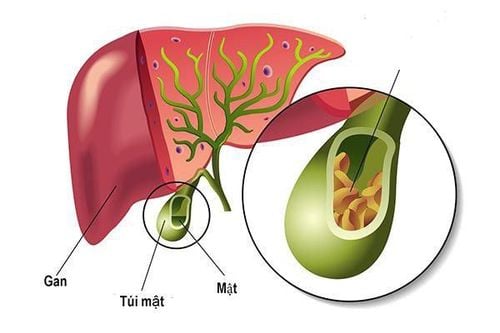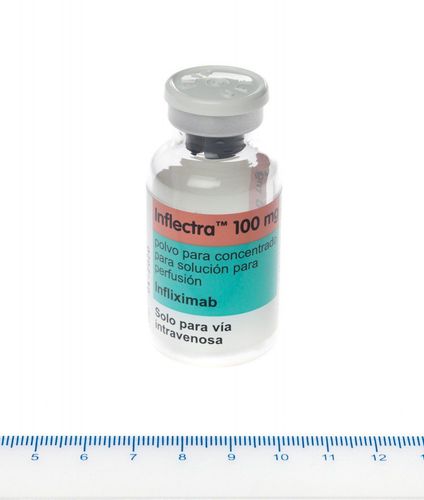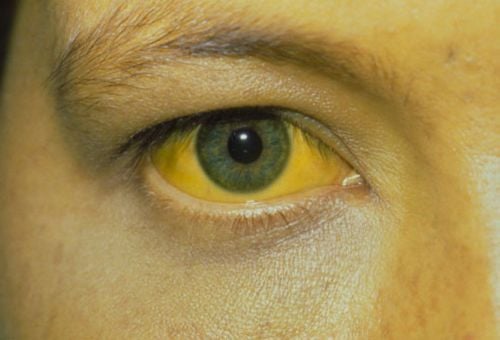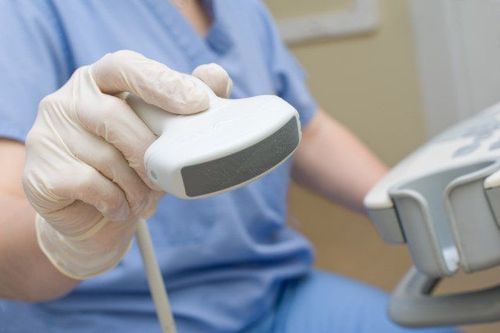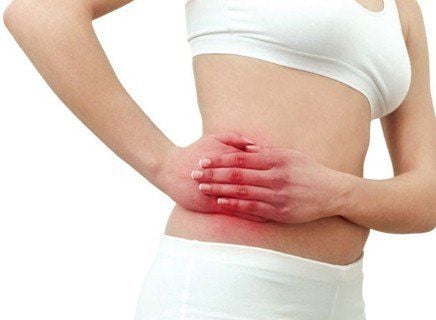This is an automatically translated article.
Posted by Master, Doctor Mai Vien Phuong - Department of Examination & Internal Medicine - Vinmec Central Park International General HospitalCrohn's disease is an inflammatory bowel disease with symptoms of abdominal pain, severe diarrhea, fatigue, weight loss, and malnutrition. Studies have shown that people with Crohn's disease are more likely to develop gallbladder disease than people without the condition.
1. Variants of Crohn's Disease
There are 6 variants of Crohn's disease, all based on location, including:
Gastroduodenal Crohn's disease mainly affects the stomach and duodenum, which is the first part of the small intestine. About 5% of people with Crohn's disease have this type. Endometriosis occurs in the second part of the intestine, called the jejunum. Like gastroduodenal Crohn's, this variant is less common. Ileitis is inflammation in the last part of the small intestine, or ileum. About 30% of people with Crohn's disease are affected at this site. Ileocolitis, which affects the ileum and colon, is the most common variant of Crohn's. About 50% of people with Crohn's disease have this variant. Crohn's colitis is found in about 20% of people with Crohn's disease. It only affects the colon. Both ulcerative colitis and Crohn's colitis affect only the colon, but Crohn's colitis can affect the deeper layers of the intestinal lining. Perianal disease affects about 30% of people with Crohn's. This variant usually involves fistulas, or abnormal connections between tissues, deep tissue infections, as well as sores and sores on the outer skin around the anus.
2. Crohn's disease and ulcerative colitis
Crohn's disease and ulcerative colitis are two types of IBD. They have many similar characteristics that often cause confusion.
They have the following features in common:
The first signs and symptoms of both Crohn's disease and ulcerative colitis are very similar. These can include diarrhea, abdominal pain and cramps, rectal bleeding, weight loss, and fatigue. Both ulcerative colitis and Crohn's disease occur more commonly in people aged 15 to 35 years and those with a family history of either type of IBD. In general, IBD tends to affect men and women equally, but this can vary by age. Despite decades of research, scientists still have not found the exact cause of the disease. In either case, an overactive immune system may be the culprit, but other factors may play a role. Differences between Crohn's disease and ulcerative colitis:
Ulcerative colitis only affects the colon. Crohn's disease can affect any part of your digestive tract, from your mouth to your anus. Ulcerative colitis affects only the outermost layer of tissue of the colon lining called the mucosa. Crohn's disease can affect all layers of your intestinal tissue from superficial to deep.

3. How does Crohn's disease increase the chance of developing gallbladder disease?
Studies have shown that people with Crohn's disease are more likely to develop gallbladder disease than people without the condition. The gallbladder is a small organ responsible for releasing bile into the small intestine. Crohn's disease can cause inflammation of the small intestine. This inflammation affects the small intestine's ability to absorb bile salts. Bile salts bind to cholesterol and make it water soluble. Without enough bile salts, cholesterol can build up in the gallbladder to form stones.
Some medications used to treat Crohn's disease can affect the liver and gallbladder. Examples include azathioprine and sulfasalazine. If you have Crohn's disease and are taking these medications, talk to your doctor about these side effects.
4. What are the symptoms of gallbladder disease?
For such a small organ, the gallbladder can cause several types of problems. If a person has gallstones, they can lead to inflammation and infection in nearby organs and cholecystitis. Some complications of gallbladder disease include:
Ascending cholangitis, an infection of the bile ducts Cholecystitis Pancreatitis Gallstones do not always cause symptoms. When they do occur, some of the symptoms may include:
Stomach bloating or gas Nausea Pain occurs in the upper right part of the abdomen after a meal Rapid pain breathing Temperature Vomiting Call your doctor if Abdominal pain that lasts more than a few hours.
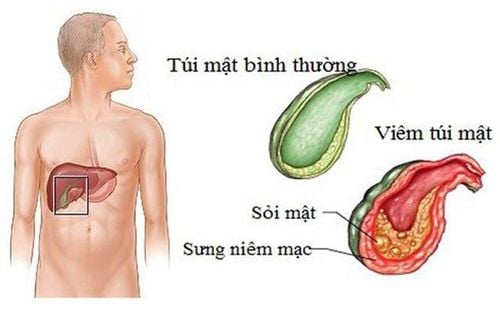
5. How to diagnose gallbladder disease?
Your doctor can determine if your condition is related to the gallbladder through various tests such as
Blood tests : Elevated liver enzymes or white blood cells can indicate gallbladder problems . Abdominal ultrasound: This noninvasive imaging test can identify stones in the gallbladder. Urinalysis: The presence of chemicals in the urine may indicate waste from the gallbladder. Nuclear tomography of the gallbladder: This imaging test allows your doctor to evaluate your gallbladder function and look for blockages of the ducts leading from the gallbladder to the small intestine.
6. How is gallbladder disease treated when you also have Crohn's disease?
Your treatment plan will depend on the type of symptoms you are experiencing and your existing medical conditions.
Your doctor may wait to prescribe treatment if you have few or no symptoms and the stones are small. Shock wave therapy or medication may be prescribed but is not commonly used.
If you are experiencing multiple symptoms, your doctor may recommend cholecystectomy. If you have Crohn's disease, it's important to discuss the risks with other conditions with your doctor. Taking steps to live a healthy life can help prevent gallbladder disease, including:
Limit alcohol intake Eat healthy fat sources, such as nuts, seeds, avocados, vegetable oils and fish Limit saturated fats and added sugars in your diet Maintain a healthy weight You can also talk to your doctor about medications you're taking that can increase your risk of gallstones . Vinmec International General Hospital is one of the hospitals that not only ensures professional quality with a team of experienced doctors and nurses, a system of modern equipment and technology. The hospital provides comprehensive, professional medical examination, consultation and treatment services, with a civilized, polite, safe and sterile medical examination and treatment space. Customers when choosing to perform tests here can be completely assured of the accuracy of test results.
Please dial HOTLINE for more information or register for an appointment HERE. Download MyVinmec app to make appointments faster and to manage your bookings easily.
References to the article: Lapidus, A., Akerlund, J., & Einarsson, C. (2006, January 7). Gallbladder bile composition in patients with Crohn's disease, Parente, F., Pastore, L., Bargiggia, S., Cucino, C., Greco, S., Molteni, M., . . . Porro, G. (2007, May). Incidence and risk factors for gallstones in patients with inflammatory bowel disease: A large case-control study.





